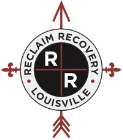Our Blogs

How to Help a Loved One Enter Addiction Treatment
How to Help a Loved One Enter Addiction Treatment: A Compassionate Guide
Watching a loved one struggle with addiction is heartbreaking and overwhelming. Many families feel helpless and unsure of how to approach the situation without pushing their loved one away. At Reclaim Recovery Louisville, we understand the delicate balance between offering support and encouraging accountability. This guide will provide compassionate, actionable steps to help you guide your loved one toward seeking addiction treatment.
Recognizing the Signs and the Need for Help
Before initiating a conversation, it's important to recognize the signs of substance use disorder. These may include:
Sudden mood swings or behavior changes
Neglect of responsibilities at work, school, or home
Physical signs such as weight changes or poor hygiene
Social withdrawal and secrecy
Legal or financial issues related to substance use
Understanding that addiction is a medical condition—not a moral failing—can help you approach the situation with empathy rather than frustration.
Choose the Right Time and Place to Talk
Timing and environment matter when discussing treatment. Choose a moment when your loved one is sober and in a calm state. Avoid confrontational or emotional outbursts, and opt for a private, quiet space where the conversation can be heartfelt and uninterrupted.
Tips for starting the conversation:
Use “I” statements to express your concern (“I’m worried about your health.”)
Avoid blame or judgment
Focus on specific behaviors and how they’ve affected you and others
Be prepared for denial, deflection, or resistance
Offer Compassionate Support, Not Ultimatums
Many people battling addiction feel ashamed or defensive. That’s why compassion goes further than control. Let your loved one know that you’re not trying to punish or pressure them—you simply want to help them reclaim their life.
Instead of ultimatums, try to:
Listen actively without interrupting
Validate their emotions and fears
Express your commitment to stand by them throughout the recovery process
Offer to research or call treatment programs together
Encourage Professional Help and Present Options
Your loved one may not know where to start—or they may feel overwhelmed by the idea of treatment. You can make it easier by offering information about programs like those at Reclaim Recovery Louisville, which include:
Residential and outpatient options
Medicaid-friendly treatment plans
Holistic and personalized care
Explain that treatment is not about punishment—it’s about healing and gaining tools for a better future. If they’re hesitant, suggest starting with an assessment to learn more before committing to a full program.
Consider a Structured Intervention (If Necessary)
If your loved one continues to deny their addiction despite serious consequences, a formal intervention may be appropriate. This involves:
Gathering a small group of trusted friends or family
Preparing statements ahead of time
Clearly presenting the impact of their addiction
Offering treatment options and a plan for immediate entry
A professional interventionist can help guide this process to ensure it is respectful, organized, and focused on support.
Be Ready to Set Boundaries
Helping someone doesn’t mean enabling their behavior. As you support your loved one, it’s also important to protect your own well-being. Establish boundaries such as:
Not providing money or substances
Refusing to cover up legal or social consequences
Asking them to seek treatment before certain privileges are restored
These boundaries communicate that you care, but won’t support destructive behavior.
Support Their Recovery Journey Long-Term
Getting your loved one into treatment is only the first step. Your continued encouragement, patience, and belief in their potential are vital during and after treatment. Ways to offer ongoing support include:
Attending family therapy or support groups
Educating yourself about addiction and recovery
Celebrating milestones in sobriety
Encouraging open, honest communication
Ready to Help Your Loved One Start Addiction Treatment? Contact Us Today
Helping a loved one seek addiction treatment can be one of the most loving and impactful actions you ever take. With the right approach—grounded in empathy, clarity, and consistent support—you can make a real difference in their life.
📞 Call Reclaim Recovery Louisville today for guidance on how to help your loved one begin the path to recovery.
📍 Visit us at 2604 South Fourth Street, Louisville, KY 40208.
Your support can be the turning point—take the first step together.
Web Design by SuBo.
